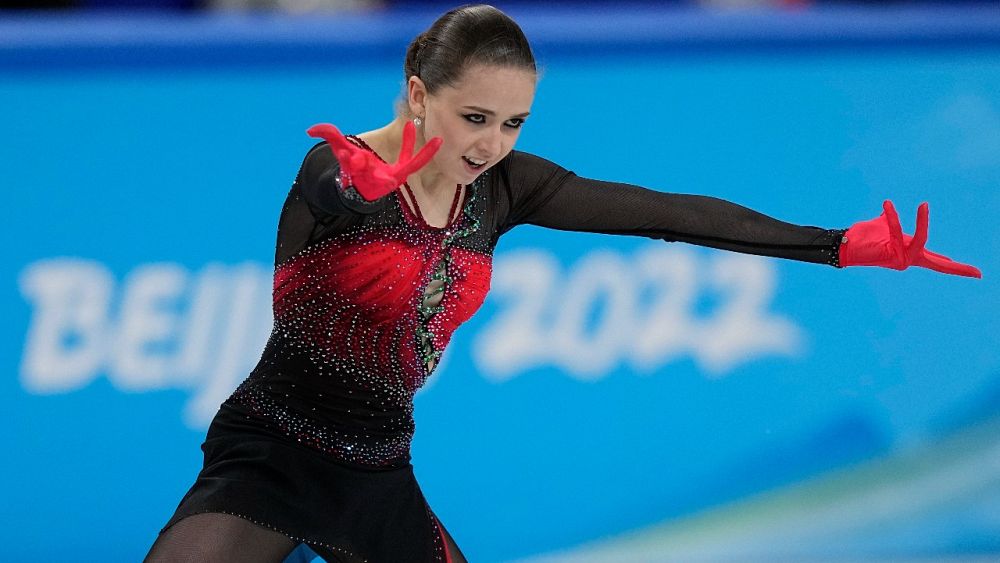
Russian figure skater Kamila Valieva’s right to compete in the women’s event at the Beijing Olympics will be decided at an urgent hearing at the Court of Arbitration for Sport.
The International Testing Agency — on behalf of the IOC — said Friday it would fight a decision by Russia’s anti-doping agency to allow the 15-year-old Valieva to skate. The Russian agency had provisionally banned Valieva this week because she failed a doping test in December.
Valieva is the heavy favorite in her event which begins Tuesday after setting world record scores this season and landing the first quad jump by a women at an Olympics.
The ITA confirmed reports that Valieva tested positive for the banned substance trimetazidine at the Russian national championships in St. Petersburg six weeks ago.
The positive test was flagged by a laboratory in Sweden only on Tuesday — the day after Valieva helped the Russians win the team event and just hours before the medal ceremony, which was then postponed. Whether the Russians will lose their gold medal in the team event will be decided later.
The legal handling of Valieva’s case started with an immediate interim ban from the Beijing Olympics imposed by the Russian agency, known as RUSADA, which oversaw testing at the national championships.
On Wednesday, a RUSADA disciplinary panel upheld her appeal to overturn the skater’s interim ban.
The urgent hearing at CAS will only consider the question of the provisional ban at these games, said the ITA which is prosecuting on behalf of the IOC.
“The IOC will exercise its right to appeal and not to wait for the reasoned decision by RUSADA, because a decision is needed before the next competition the athlete is due to take part in,” the testing agency said.
Though Valieva is at the heart of the case, as a 15-year-old she has protections in the sports’ rule book – the World Anti-Doping Code. Under these guidelines she could ultimately receive just a simple reprimand.
When a minor is implicated in doping rules violations, the focus of the mandatory investigation turns to her entourage, such as coaches and team doctors.
“We have 100% policy against doping. And clearly, we will pursue all doping cases to the end,” IOC spokesman Mark Adams said.
“But clearly in this specific case, it is an active case, and we are waiting for it to be fully seen to the end, and it would be wrong of anyone to make any comment on this, actually particularly because we are talking about a case of a minor, a protected person. I think people need to be a little bit careful with their kind of wild speculation on an active case.”
Valieva will likely be disqualified from her Russian national title in December but could still be cleared to compete in Beijing next week.
Russia is competing in the Beijing Olympics as ROC, short for Russian Olympic Committee, without its anthem or flag. That’s because of the fallout from years of doping disputes including steroid use and cover-ups at the 2014 Winter Olympics, which Russia hosted.